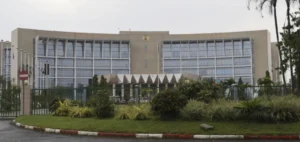Italiana Petroli is at the center of significant negotiations that could reshape the Italian energy landscape in the coming weeks. Three major players from the international energy sector are currently competing for full control of the Italian refiner: Gunvor, a Switzerland-based commodity trader; the State Oil Company of Azerbaijan (SOCAR); and the Abu Dhabi-based Bin Butti Group. Each of these entities has submitted a binding offer to acquire the entire capital of the group, owned by the Brachetti Peretti family. The transaction amount, according to sources cited by Reuters, is estimated at nearly €3 billion.
Valuation and Financial Stakes
The valuation of Italiana Petroli is the primary sticking point in ongoing negotiations. The Italian group, advised by UniCredit, shows strong financial performance with adjusted operating profits of nearly €500 million and positive net cash of €408 million at the end of last year. These results heighten the sensitivity of current discussions, as each potential buyer differently assesses the future potential of the group’s assets. The Brachetti Peretti family is insisting on a firm valuation around €3 billion.
Interest from other industrial groups from the Middle East has also been indicated, signaling a possibility of reopening negotiations should current talks fall through. However, these new players remain in the background for now, closely monitoring developments without submitting official proposals at this stage.
Strategic Assets of the Refiner
Italiana Petroli has a total refining capacity of about 200,000 barrels per day, spread across several strategic locations. The company notably owns the Ancona refinery in eastern Italy, as well as the SARPOM refinery in Trecate in the north, which produces aviation fuel, among other products. Additionally, it holds a tolling contract for the Alma refinery in Ravenna, specializing in bitumen production, thus consolidating a diversified and complementary portfolio.
In 2023, Italiana Petroli further expanded its industrial capabilities with the acquisition of Exxon Mobil’s Italian assets, marking a key development milestone. The group’s distribution network is also significant, with about 4,600 fuel stations across Italy, a major strategic asset for potential buyers.
Financial Advisors and Buyer Support
The acquisition candidates are backed by renowned financial advisors: SOCAR is advised by Intesa Sanpaolo IMI CIB, while Gunvor is working with Rothschild. These advisors underscore the strategic importance of the transaction within Europe’s energy sector and beyond, reflecting significant stakes for each participant.
The outcome, expected by late June, will be closely watched by the international energy sector, given the significant industrial, financial, and strategic implications of such a transaction in the medium term. The result could notably impact the competitive dynamics of the European refining market, naturally attracting the attention of industry professionals.






















